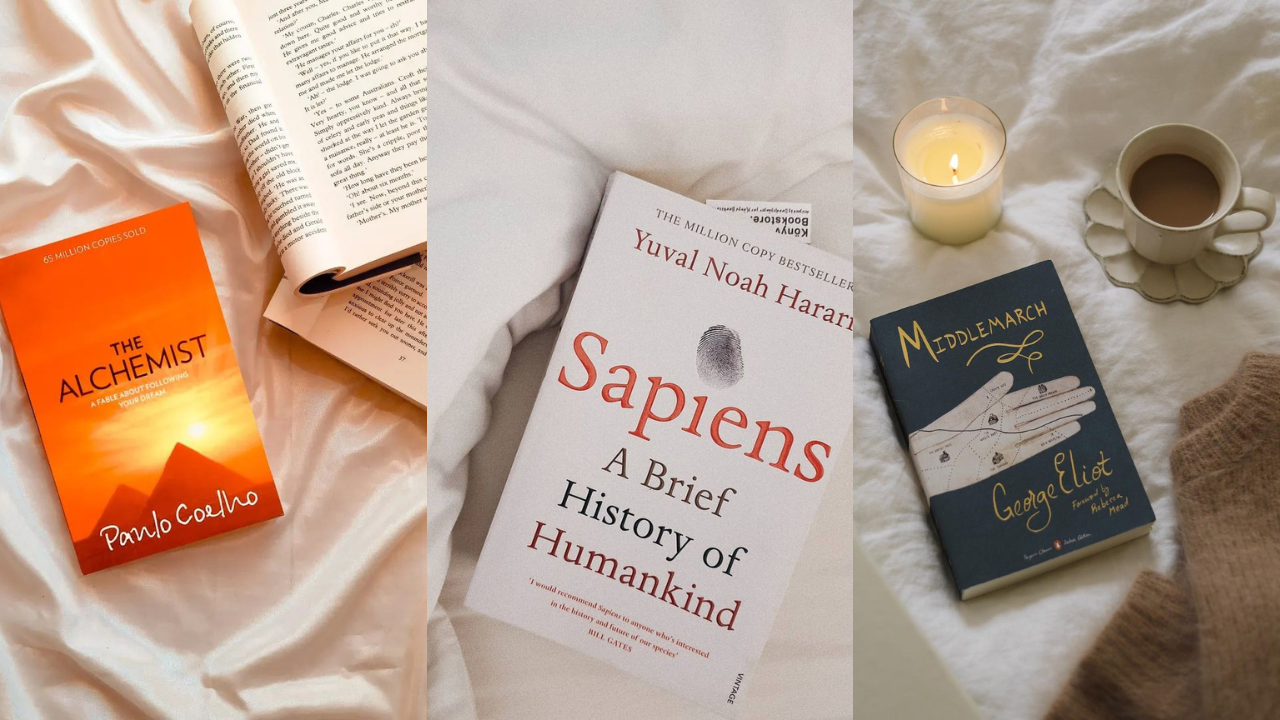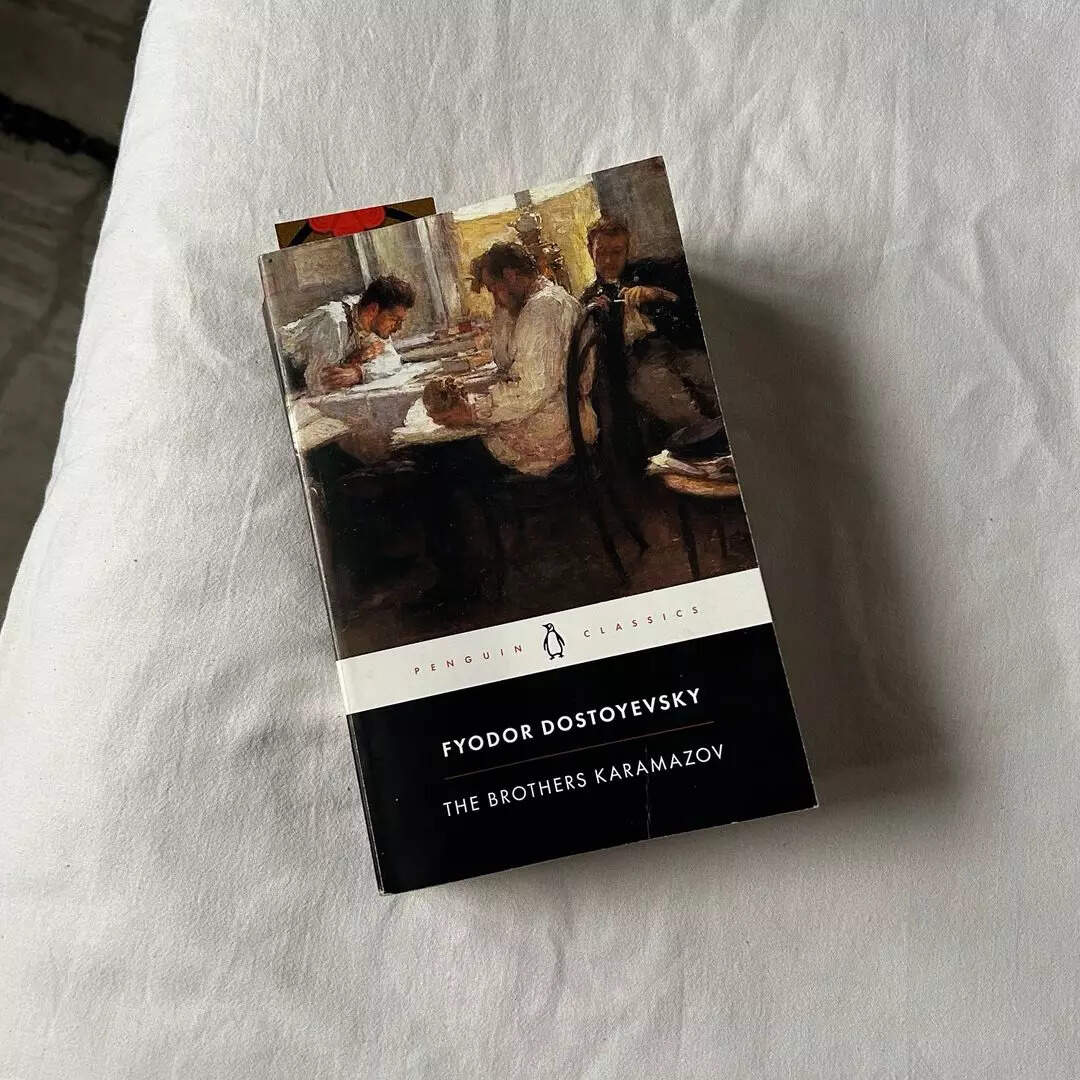World Book and Copyright Day 2024: List of Best Books Everyone Should Read
Explore 15 transformative books for World Book Day 2024. From timeless classics to thought-provoking non-fiction, this list spans genres and cultures, offering profound insights into humanity, history, and personal growth. Perfect for expanding horizons and fostering a deeper appreciation for the literary world.

World Book and Copyright Day 2024: List of Best Books Everyone Should Read (Picture Credit - Instagram)
World Book and Copyright Day is a celebration of reading, literature, and the rights of authors and publishers. In honour of this significant day, here is a list of 15 essential books that span genres, eras, and continents, offering something for every type of reader. Whether you’re looking for profound literary classics, groundbreaking modern narratives, or transformative life lessons, this list has it all.
1. To Kill a Mockingbird by Harper Lee
Harper Lee’s Pulitzer Prize-winning novel, 'To Kill a Mockingbird', tackles the grim realities of racial injustice in the American South through the innocent eyes of Scout Finch. As her father, lawyer Atticus Finch, defends a black man unjustly accused of a grave crime, the novel explores themes of morality, justice, and the loss of innocence with poignant clarity and emotional depth.

2. 1984 by George Orwell
Orwell's '1984' offers a terrifying vision of a totalitarian regime that uses surveillance, censorship, and propaganda to control its citizens. In a world where the government rewrites history and individuality is crushed, the protagonist, Winston Smith, struggles against the oppressive force of the state, prompting readers to consider the value of truth and freedom in their own lives.
3. Pride and Prejudice by Jane Austen
Jane Austen’s 'Pride and Prejudice' brilliantly captures the societal expectations and matrimonial ambitions of the early 19th century through the romantic entanglements of Elizabeth Bennet and Mr. Darcy. With a keen eye for irony, Austen dissects the social fabric of her time, making incisive observations about wealth, class, and character that remain relevant today.

4. The Great Gatsby by F. Scott Fitzgerald
Set in the opulent roaring 20s, 'The Great Gatsby' delves into the glamorous and tragic life of Jay Gatsby and his obsession with Daisy Buchanan. Fitzgerald's sharp critique of the American Dream examines themes of decadence, idealism, resistance to change, and social upheaval, offering a powerful exploration of the American identity in the Jazz Age.
5. The Catcher in the Rye by J.D. Salinger
J.D. Salinger’s 'The Catcher in the Rye' is a profound narrative of teenage angst and alienation that defines the adolescent experience. Holden Caulfield’s journey through New York City and his quest for purity in a corrupted world resonate with readers who have ever felt out of step with the society around them.

6. The Alchemist by Paulo Coelho
Paulo Coelho’s 'The Alchemist' is a metaphysical tale that follows young shepherd Santiago in his quest to find worldly treasure, only to discover a richer, internal spiritual journey. Themes of destiny, dreams, and the interconnectedness of nature permeate this simple yet profound narrative that encourages readers to pursue their dreams while staying connected to their spiritual essence.
7. Beloved by Toni Morrison
Toni Morrison’s 'Beloved', set after the American Civil War, is an intense narrative of the psychological scars left by slavery. The story revolves around Sethe, an escaped slave who is haunted by the ghost of her dead child. Morrison confronts the brutal impacts of slavery in a story of memory, trauma, and the struggle for identity.

8. One Hundred Years of Solitude by Gabriel García Márquez
Gabriel García Márquez's 'One Hundred Years of Solitude' is a seminal saga of the Buendía family over seven generations. Employing magical realism, Márquez weaves a tapestry of the fantastical and the real, exploring Latin American history and the human condition in a narrative that bends time, memory, and reality.
9. The Brothers Karamazov by Fyodor Dostoevsky
'The Brothers Karamazov', Fyodor Dostoevsky’s last novel, is a profound philosophical discussion framed by the story of four brothers and the murder of their father. Through the characters’ struggles with faith, doubt, and morality, Dostoevsky examines the existence of God, the nature of free will, and the complexity of human motives.

10. Sapiens: A Brief History of Humankind by Yuval Noah Harari
Yuval Noah Harari’s 'Sapiens' distils the major developments of human history from the emergence of Homo sapiens to the present. Harari questions what sets humans apart from other species, exploring how myths, ideologies, and technological advances have shaped the societies and the world we live in today.
11. Life of Pi by Yann Martel
Yann Martel’s 'Life of Pi' is an extraordinary survival story of Pi Patel, who is stranded on a lifeboat in the Pacific Ocean with a Bengal tiger. The novel is a meditation on religion, faith, and the inherent will to survive, wrapped in a narrative full of symbolism and complex philosophical questions.

12. Frankenstein by Mary Shelley
Mary Shelley's 'Frankenstein' explores the ramifications of man's pursuit of scientific knowledge and creation. This gothic novel tells the tragic story of Victor Frankenstein, who creates a "monster" that ultimately causes his downfall. Shelley’s narrative investigates themes of ambition, ethics, and humanity, questioning the moral limits of scientific exploration.
13. Invisible Man by Ralph Ellison
Ralph Ellison's 'Invisible Man' is a powerful analysis of race and individuality in America. The novel describes the journey of an African American man whose colour renders him invisible to society. This deeply introspective work explores the social and psychological aspects of race relations and the search for identity in a racially divided world.

14. Middlemarch by George Eliot
George Eliot’s 'Middlemarch' is a richly detailed study of provincial life in 19th-century England. The novel examines the lives, loves, and ambitions of an ensemble cast of characters, presenting a broad view of human striving. Eliot combines psychological insight with social critique, making her work a staple of literary realism.
15. A Brief History of Time by Stephen Hawking
Stephen Hawking’s 'A Brief History of Time' breaks down complex theories of the universe in terms that can be understood by non-scientists. This seminal work discusses the structure, origin, development, and eventual fate of the universe, providing a clear and accessible overview of modern physics and cosmology.

As we celebrate World Book Day 2024, these 15 books offer a range of experiences and insights that can enrich your understanding of the world and yourself. Whether you are drawn to the introspective examination of human behaviour, the imaginative leaps of fantasy, or the sobering analyses of history and science, there is something on this list for everyone. Happy reading!
Trending:
End of Article
Subscribe to our daily Lifestyle Newsletter!
Related News





8 Books To Understand The Power Of Manifestation

‘There’s Nothing Called G-Spot': Expert Shares What Actually Makes A Woman Orgasm

10 Tips To Make A Small Bedroom Look Bigger

Why Travelling With Your Children Is Good For Them

Signs You Are Tricking Yourself Into Staying In A Wrong Relationship









